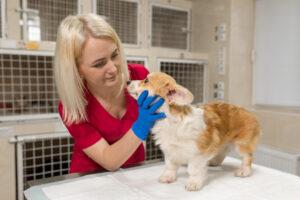Bacteria-killing, biodegradable food packaging material
Antibacterial, biodegradable packaging has been developed by researchers in Singapore that could replace plastic packaging materials.
The identification of emerging risks is an ongoing process. The external communication of emerging risks is a complex task, with the methods, timing and target audience being determined on a case-by-case basis. Depending on the nature of the issue, the target group may be the authority (in particular the National Food Chain Safety Office – NÉBIH), senior managers, the professional community, food businesses or the wider community, consumers interested in the issue, etc. Not only emerging risks requiring action may be communicated, but some issues may also help to promote research or be important due to their educational character, and therefore may be communicated through communication channels such as the DFI's website.
Antibacterial, biodegradable packaging has been developed by researchers in Singapore that could replace plastic packaging materials.

A study has investigated whether the consumption of products made from Italian heavy pigs could pose a health risk to consumers in terms of contamination with certain toxic metals and metalloids.

The number of hens kept in urban backyards is rising. The growing popularity of the trend has been spurred on by local food movements, inspiring people to produce their own food.

One of the greatest challenges of our time, antimicrobial resistance, threatens not only human but also animal health.
Pathogenic bacteria in humans are developing resistance to antibiotics much faster than expected. A new computational research shows that one reason could be significant genetic transfer between bacteria in our ecosystems and to humans.
Operation Silver Axe is carried out annually to identify and seize illegal pesticides. The 2022 operation concluded on the increasing number of frauds.

The study of Pesticide Action Network (PAN) Europe shows a dramatic rise in the most toxic pesticides found on fruits and vegetables sold in Europe and evidence that governments are failing their legal obligations.

The bacterium has caused outbreaks in the US in recent years. Because of climate change, we should expect it to appear in Europe and in Hungary sooner or later.

Authorities in several EU Member States (France, Italy, Sweden, the Netherlands, Portugal) and the United Kingdom are raising awareness of Brucella canis outbreaks and infestations, mainly in imported dogs.

Our Institute has been notified of the following issue through the EFSA EREN network.

Consumption of whole seeds and foods made from them is recommended because of their nutritional value and beneficial health effects, but it is important to know that they may also contain various contaminants.
According to the 2009 study of the European Food Safety Authority, cadmium potentiate prediabetes and diabetes in humans referring to the article Schwartz et al., 2003. A new publication might add valuable information to possible future risk assessments.

The popularity of plant-based meat and dairy products has increased significantly in recent years, creating a new market for these products. While these alternatives may be useful as a practical replacements for meat and dairy products, from a nutritional point of view they cannot be considered as substitutes.

A research team from the University of the Basque Country has conducted a study into the prevalence and characterisation of bacteria of the Arcobacter genus using a large number of samples of different foods (seafood, vegetables, meat products and fresh cheese), including some that have never been analysed in our environment previously. In addition, they have studied the ability of these bacteria to adhere to various surfaces frequently found in food processing environments.

ANSES (French Food Safety Authority) draws attention to dozens of cases of hepatitis related to the consumption of turmeric or curcumin dietary supplements.
Currently, research is increasing on the use of plant-derived substances and essential oils against food pathogens, due to their antimicrobial effect. According to the current trend, chemical substances are used in the smallest possible amount, therefore essential oils can be suitable alternatives to chemical antimicrobial substances. Various beneficial effects can be achieved in combination with nanoparticles (e.g. controlled release of the active ingredient). Below is a short summary of the publications that have come to our attention on the subject.
A recent Polish study has come to an interesting conclusion about the dietary intake of lead.

The case was presented by the Member State representative at a meeting of EFSA's Emerging Risks Network (EREN).

Initially discovered in Japan, the Asian leafhopper Arboridia kakogawana has been recently identified in Europe.